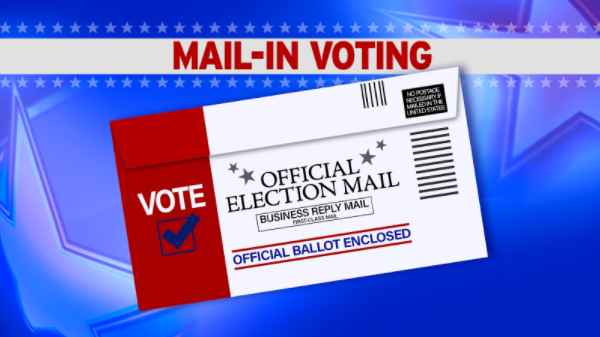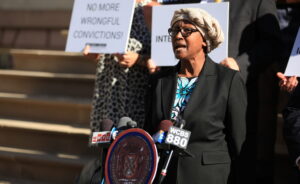
Thumbnail Credit: ABC 7 Chicago
Washington, D.C – Judge Karen Nelson Moore of the U.S. Court of Appeals for the 6th Circuit is criticizing judges who favor states seeking to limit mail-in voting. As a result, there’s a cascade of voter suppression cases in the nation’s courtrooms. The concern is rising leading ordinary Americans and voting rights activists to wonder if the courts are chipping away votes?
In a dissenting opinion from last week, Judge Moore writes about how Tennessee handles absentee voting. She disagrees with her fellow judges in a lawsuit challenging Tennessee’s signature match rules for mail-in-voting.
Mail-in-voting in Tennessee
Voting right groups via lawsuits are challenging numerous state rules that limit absentee voting. In Tennessee, a county election officer needs to compare the signature on the envelope of an absentee ballot with the signature on voter registration records. If the signatures don’t match, the ballot is cast aside.
Election officials must notify Tennessee voters when their ballots are cast aside. Thereafter, these voters can either submit a new absentee ballot or vote in person. On the other hand, voting right groups call this process unconstitutional. These groups advocate that Tennessee should allow voters to rectify ballots with inconsistent signatures.
Moore believes that based on the evidence available, many ballot rejections are likely to be faulty. Officials don’t redirect or educate voters about the signature requirement. Further, Moore believes that states are violating voters’ rights by not providing notice and an opportunity to remedy a ballot with a signature issue. There is no guarantee that voters are notified promptly about their ballot being cast aside.
Moore said, “As a result of this decision, Tennessee is free to — and will — disenfranchise hundreds, if not thousands of its citizens who cast their votes absentee by mail.” Moore’s dissent comes as judges struggle to resolve a cascade of lawsuits, challenging how states handle voting during the pandemic. Meanwhile, Republicans argue in favor of states that restrict mail-in-voting on baseless claims of voter fraud.
How courts constantly change the ballot rules
Many voters are casting their ballots early because of the pandemic but courts are constantly changing absentee ballot rules. It’s a confusing mish-mash with different rules for different states. Here are a few:
- South Carolina. In compliance with the U.S. Supreme Court directive, voters will require a witness for mail-in votes in South Carolina. This directive comes into effect while voting is ongoing in the state.
- Alabama. Voting rights activists are challenging an order that lifts the state’s requirement that absentee voters with medical conditions have a witness sign their ballots.
- Arizona. Surprisingly, the voter registration deadline now enables absentee voters to rectify ballots with missing signatures.
- Wisconsin. Here, the Court of Appeals with 2-1 votes, is blocking an injunction to extend the state’s deadline for voter registration online, or via regular mail. Election officials in Wisconsin need to count absentee ballots that arrive by Nov. 9, as long as those ballots are postmarked by Election Day.
- Pennsylvania. As in Wisconsin, election officials in Pennsylvania can count absentee ballots as late as the Friday after Election Day if absentee voters postmark them by Nov. 3.
- New Jersey. Meanwhile, as per a federal court’s order, New Jersey mail-in ballots without a proper postmark are not acceptable. Additionally, election officials will not start counting ballots that arrive before Election Day.
- Texas. The situation is complex in the Lone Star State because the Supreme Court has ruled that county clerks can’t send absentee ballot applications to registered voters in Houston.
Uncertainty for voters
This is an extraordinary amount of inconsistency and uncertainty for voters. For the same reason, judges across the country are facing accusations of systematic efforts to suppress votes. Courts are grappling with balancing the Purcell Principle, a legal doctrine warning courts against changing voting rules close to an election.
Approximately 300 election-related lawsuits exist amid the pandemic. Regardless of how the courts respond moving forward, election officials are in limbo until there is a permanent solution. The country is dealing with arson attacks inside ballot drop boxes because of this chaos like in Boston and California. Is there a permanent solution?
Thumbnail Credit: ABC 7 Chicago
Afia is a lawyer, journalist, an avid traveler, an avid reader, a foodie, and an amateur singer. She enjoys instrumental music with her glass of wine ?



